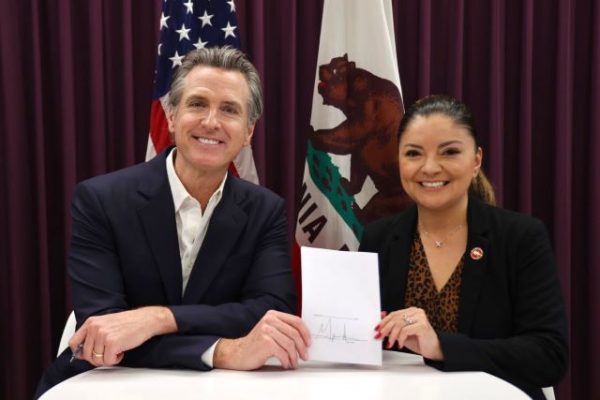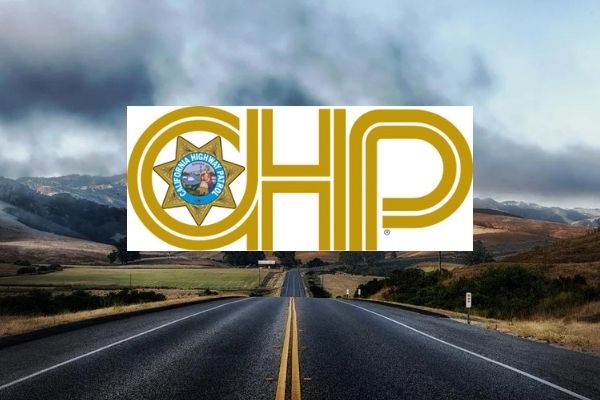New state laws go into effect

Governor Newsom signed Senator Gonzalez’s SB 616, which expands the number of sick days available to workers from 3 to 5.
– In partnership with the California Legislature, California Governor Gavin Newsom this year signed legislation to support the reproductive rights of Californians, increase affordable housing, hold Big Oil accountable, and protect the safety, health, and well-being of all Californians.
“California is more than just a state of dreamers, we’re a state of doers,” said Newsom, “Thanks to the legislature’s strong partnership in 2023, the state is leading by example to create opportunity, and advance and protect the rights of all Californians.”
Here is an overview at a few bills that will took effect on Jan. 1, 2024, as highlighted by the governor’s office:
Assemblymember Bauer-Kahan’s AB 352 requires companies that manage electronic health records to protect all Californians’ and visitors’ electronic medical records related to abortion, gender-affirming care, pregnancy loss, and other sensitive services.
Senator Skinner’s SB 345 protects providers and people from enforcement action in California of other states’ laws that criminalize or limit reproductive and gender-affirming health care services.
Assemblymember Haney’s AB 663 allows for more mobile pharmacies to be created in communities across the state and enables them to dispense treatment medications for opioid use disorder.
Senator Gonzalez’s SB 616 expands the number of sick days available to workers from 3 to 5.
Assemblymember Pellerin’s AB 545 allows voters with a disability to complete a regular ballot outside of any polling place—known as curbside voting—and removes the requirement for a voter to declare under oath that they are unable to mark their ballot in order to receive assistance doing so.
Senator Skinner’s SBX1-2 grants the California Energy Commission new authority to penalize refineries and set a maximum gross gasoline refining margin if necessary to help combat price gouging. It also creates a new independent state watchdog to investigate market or price manipulation.
Senator Wiener’s SB 423 extends and expands existing law, requiring local governments that are failing to meet state housing planning goals to streamline affordable housing projects. This will increase affordable housing throughout the state in uncooperative cities.
Senator Weiner’s SB 4, known as the “Yes in God’s Backyard” bill, allows housing to be developed on property owned by religious or independent higher education institutions. These groups are given this authority “by right,” which requires no discretionary local governance intervention.
Senator Eggman’s SB 326 reforms the Mental Health Services Act—making better use of Mental Health Services Act funding to address today’s needs and increasing accountability to the public.
Assemblymember Irwin’s AB 531 would issue $6.38 billion in bonds to fund 11,150 new behavioral health beds and housing as well as 26,700 outpatient treatment slots.
Senator Grove’s SB 14 to steepen penalties for human trafficking of minors in California. The law designates human trafficking of a minor for purposes of a commercial sex act as a serious felony.
- AB 1291 by Assemblymember McCarty establishes the University of California Associate Degree for Transfer Pilot Program, beginning with UCLA, to prioritize admission of a student who earns an associate degree for transfer from selected community colleges and to redirect a student who meets those requirements but is denied admission to the applicable campus and offer admission to at least one other campus.

The California Highway Patrol is also educating the public on traffic safety laws that were passed during this year’s legislative session with the following new traffic law highlights:
Vehicles: Registration – AB 256 (Dixon)
Existing law requires current month and year tabs to be displayed on the registered vehicle’s rear license plate. Beginning July 1, 2024, and until Jan. 1, 2030, a violation of vehicle registration shall not be the sole basis for any enforcement action before the second month after the month of expiration of a vehicle’s registration. However, if a vehicle is stopped for any other Vehicle Code violation, enforcement action for a violation of vehicle registration may be taken before the second month following the month of expiration. Late registration fees from the Department of Motor Vehicles will still apply.
Vehicle Removal: Expired registration (AB 925, Ta)
Requires a peace officer or traffic enforcement official to verify the lack of current vehicle registration with the Department of Motor Vehicles before towing a vehicle for expired registration longer than six months and prohibits the vehicle from being towed if the officer or traffic enforcement official does not have immediate access to those records.
Vehicles: Speed safety system pilot program – AB 645 (Friedman)
The cities of Los Angeles, Oakland, San Jose, Glendale, Long Beach, and the City and County of San Francisco may install a limited number of cameras to enforce speed limits for a five-year pilot period in school zones and designated “safety corridors” – locations that have a high occurrence of fatal and injury crashes – and areas known for illegal street racing. Recorded violations will be subject to a civil penalty.
Vehicles: stopping, standing, and parking – AB 413 (Lee)
Designed to increase visibility at crosswalks, this law prohibits parking or stopping a vehicle along a curb at least 20 feet from a marked crosswalk or 15 feet of a crosswalk where a curb extension is present. The regulation only applies to the side of the road of the vehicle’s approach to the crosswalk. Local jurisdictions may establish different distances through local ordinances by marking areas with signs or paint.
The law removes city and county authority to regulate cruising via local ordinances. Additionally, the law legalizes “lowrider” vehicles to cruise California’s streets, by removing the height restriction on lowered vehicles.
Automobile Dismantlers: Catalytic converters – AB 641 (Fong)
This law redefined an automobile dismantler to include individuals in possession of nine or more catalytic converters. Additionally, the law creates penalties for individuals illegally acting as an automobile dismantler. Individuals and businesses who have a legitimate purpose for having catalytic convertors, such as repair shops, will be excluded from penalty.
Vehicles: Catalytic converters – AB 1519 (Bains)
This law makes it illegal to remove a Vehicle Identification Number (VIN) marking from a catalytic converter. It also makes it illegal to possess three or more catalytic converters that have had their VIN markings removed.
Vehicles: Catalytic converters – SB 55 (Umberg)
This law requires a motor vehicle dealer or retailer to have the catalytic converter engraved or etched with the VIN before a new or used truck or car is sold. The law does allow for the purchaser to decline having the VIN etched or engraved on the catalytic converter.
Emergency Notification: Ebony Alert: Missing Black Youth – SB 673 (Bradford)
This legislation establishes the “Ebony Alert,” which allows law enforcement agencies to request the CHP to activate an alert for Black youth, including young women and girls between 12 to 25 years of age, who are reported missing under unexplained or suspicious circumstances, at risk, developmentally disabled, cognitively impaired, or who have been abducted.
Emergency Services: Endangered missing advisory – AB 946 (Nguyen)
This new law will aid in the recovery of missing persons who do not meet the age restrictions associated with the AMBER and Silver Alerts. The new law authorizes law enforcement agencies to request the CHP activate the “Endangered Missing Advisory” for public distribution of missing person information within appropriate geographical areas when specific criteria is met.
Vehicle safety regulations – SB 68 (McGuire)
This law authorizes the CHP to establish rules and regulations allowing commercial vehicles capable of carrying more than 500 gallons of fuel to exceed the standard 10 hours-of-service limit during Governor-declared State of Emergencies. The exception only applies for the purpose of vehicles transporting fuel for refueling aircraft used in emergency-related activities, including fire suppression.
Pupil transportation: driver qualifications – SB 88 (Skinner)
This law will require drivers and their vehicles which are used by a local educational agency to provide pupil transportation for compensation, to meet certain safety requirements.
Vehicles: zero-emission school buses: Signage – SB 775 (Padilla)
This law authorizes a school district, county office of education, or charter school using a zero-emission school bus to transport pupils at or below the 12th-grade level to place signage on the rear of the zero-emission school bus that identifies the school bus as a clean air zero-emission bus. It also authorizes the CHP to issue guidelines governing the size and placement of that signage.
Other notable new laws include SB 700, which prohibits an employer from requesting information from an applicant’s prior cannabis use.
AB 2188 prohibits employers from discriminating against a worker or applicant based on their use of cannabis off the job and away from the workplace. Those who work in building and construction trades and federal workers are exempt from this, reports say.
Additionally this year, California’s minimum wage overall will increase to $16 dollars an hour when the new year begins because of a state law that requires the minimum wage to adjust for inflation.
There will be new limits for gun buyers and carriers: SB 2 places new limits on concealed carry firearm permit holders, and AB 28 imposes an 11% tax on firearms and ammunition to help fund violence prevention programs.
To see a full summary of laws passed during the 2023–2024 legislative session, click here: courts.ca.gov/documents/2023_SummaryofCourt-RelatedLegislation_121523.pdf
Comments
The news staff of the Paso Robles Daily News wrote or edited this story from local contributors and press releases. The news staff can be reached at info@pasoroblesdailynews.com.






















